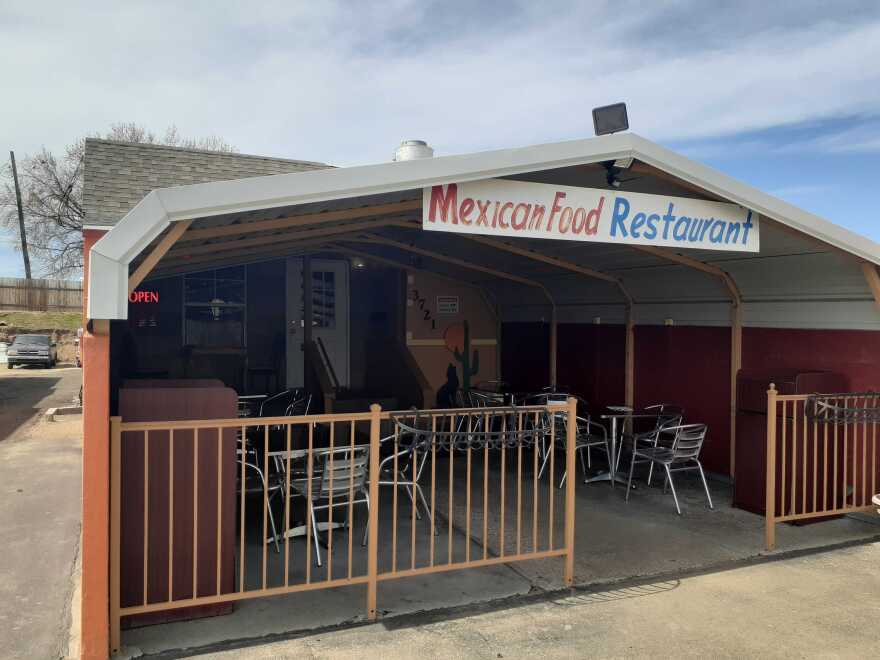José Casillas knew something was wrong based on the number of burritos he was selling. As manager of Mi Gallo Giro, a small Mexican restaurant in Evans, he typically filled five big orders a week for oil and gas companies’ safety meetings, making 50 to 100 burritos for each one.
But last week, two of his regular customers called to cancel their orders. Another cut their request in half.
“What I hear is it’s worse and worse because of the sudden oil drop,” Casillas said. “All we can hope for is another price rise, I guess.”
Amid the coronavirus pandemic and disputes between the world's biggest suppliers, the price per barrel of U.S. oil has plunged to around $25 — its lowest level in nearly two decades.
The drop has sent a wave of concern through Weld County, where most of the state’s active drill rigs are located and where the industry pumps billions into the local economy each year. The number of rigs operating in the Denver-Julesburg basin has fallen around 20% lower than what it was this time last year, according to industry data.
Major operators have slashed their spending forecasts and begun laying off workers. Meanwhile, small businesses that depend on the steady stream of drilling, from welders to restaurants, have started slowing down.
Casillas said he’s now reassessing how much meat, produce and tortillas to buy from suppliers and whether he needs to lay off some of his kitchen staff.
It’s the type of situation a lot of companies find themselves in right now.

“The industry’s really become a victim of its own success,” said Chris Wright, CEO of Liberty Oilfield Services, a Denver-based fracking company. “We can produce more oil and gas now spending less money and frankly with less workers.”
Even before COVID-19 arrived on the international stage, U.S. oil production had grown so much over the past several years, it created a glut in the market and pushed prices down. Wright said now the virus is pushing them even lower.
“That’s taken 10 or more dollars off the price of oil — this fear of most likely slower demand growth than we would otherwise have gotten with positive economic growth in the world,” Wright said.
Wright said Liberty and other companies in the oilfield will need to find ways to strengthen customer relationships. If not, they’ll need to look at ways to cut costs to survive the downturn.
Colby Edgington, an employee of Westroc, a rig moving company in Milliken, said he’s had to lower his rates in order to stay competitive — a strategy that’s helped in the short term. But a lot of the moves have been to “lay down” rigs, which means retiring them until prices come back up and drilling becomes more profitable.
“We’re crazy busy,” he said. “We already have three rigs stacked in our yard. There isn’t a lot of hope for the future.”
Bernadette Johnson, vice president of strategic analytics for Enverus, an energy industry forecaster based in Denver, said that could mean more layoffs in the months ahead.
“You’re going to see growth but we’re not growing as fast,” Johnson said. “If we grow slower, it means we don’t drill as many wells, which means we don’t need as many people out in the field.”
Tighter state regulations have also played a part in the slowdown, she said.
"I think it's a smaller factor (than prices)," Johnson said. "But what it does at the end of the day is it introduces uncertainty. So it makes it harder for you to deploy capital."

Meanwhile, state lawmakers are forecasting a drop in severance tax revenue from oil and gas producers. And local governments are increasingly worried about their tax base. Don Warden, Weld County’s director of finance and administration, said everyone is affected by low oil prices.
“School districts, fire districts, recreation districts, municipalities as well as the county— we’re all going to be adversely impacted,” Warden said.
That’s because more than half of the property taxes collected by the county comes from oil and gas. So, if revenue from the energy sector drops off, other taxpayers could be left to foot the bill if cash reserves dry up, Warden said.
“If there’s bonding for construction of say a new high school, say Platte Valley in Kersey, the bonded indebtedness (who pays that) will be impacted,” he said. “Instead of the oil and gas companies paying two thirds of that, as production drops other taxpayers will pick up a bigger share of that such as residential, ag and commercial.”
Long story short, even if you aren’t directly affected by an oil and gas bust, you may see a bigger tax bill in the coming years if you live in Weld County. How much bigger depends on how long the downturn lasts, Warden said.
"I think when you see oil drop down to the $30s (per barrel)— that's a bust," Warden said. "If it stays down for six or eight weeks it won't be as damaging. If it stays down a couple years it's going to be very damaging."
The county has been through energy booms and busts before — that’s just how the industry works. Restaurant manager Jose Casillas said he’s seen several of these cycles.
“I’ve been here since 2008. I’ve seen it come and go maybe two or three times,” he said. “When it comes it’s amazing. It’s beautiful. But when it’s gone, you know, I see a lot of people struggling. A lot of people who really depend on it.”
But this one, he said, feels different.
The county recently declared a “local disaster emergency” due to the public health crisis and looming economic impacts. The declaration unlocks federal financial aid for people and businesses hit hardest by the downturn in the weeks and months ahead.







